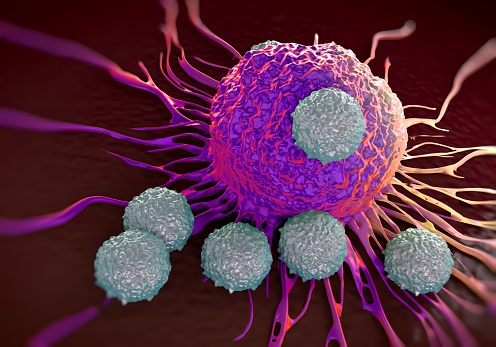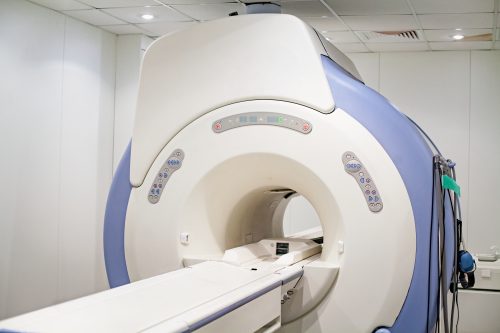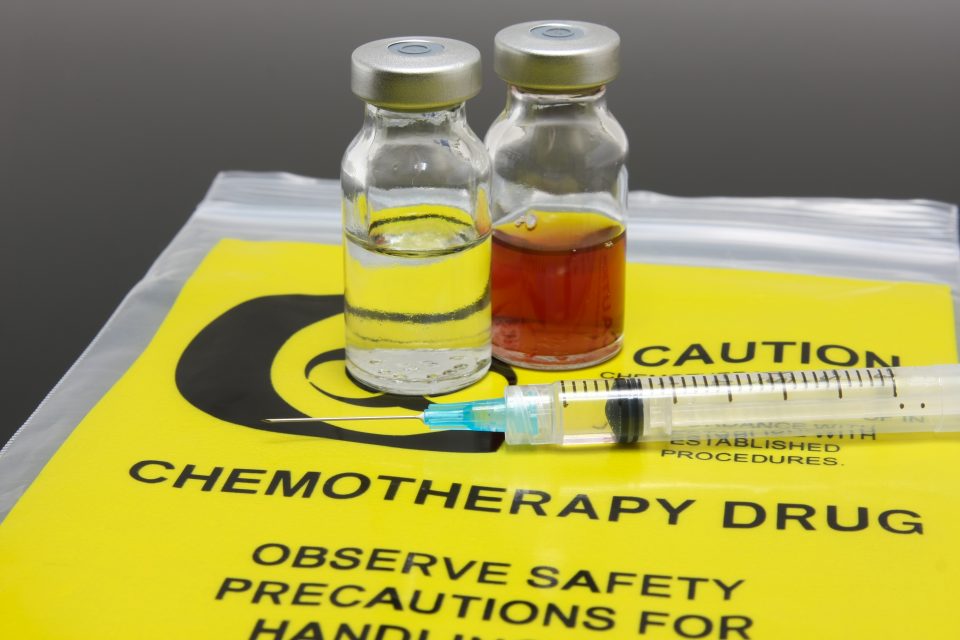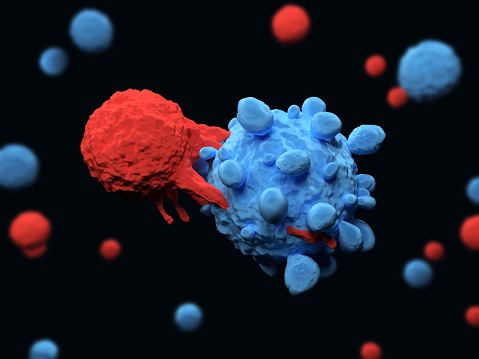
Immune Checkpoint Therapy plus Cytoreductive Surgery in mRCC
Patients with metastatic renal cell carcinoma (mRCC) gain clinical benefit from cytoreductive surgery, including cytoreductive nephrectomy and metastasectomy. However, there are few data available on cytoreductive surgery in the setting of immune checkpoint therapy. Jianjun Gao, MD, PhD, and colleagues conducted a presurgery/biopsy trial designed to evaluate biological and clinical activity of nivolumab (nivo) or nivo plus bevacizumab (bev) or nivo plus ipilimumab (ipi) in patients with mRCC. Results of the trial were reported in an oral presentation at ASCO 2019.
The open-label, randomized trial enrolled patients with mRCC without prior immune checkpoint therapy and anti-vascular endothelial growth factor therapy. The participants were randomized 2:3:2 to receive nivo (3three rounds of 3 mg/kg once every 2 weeks), nivo + bev (three rounds of 10 mg/kg once every 2 weeks), or novo + ipi (two rounds of 1 mg/kg once every 3 weeks), followed by cytoreductive surgery or biopsy, and then nivo maintenance therapy up to 2 years. Clinical response was measured at ≥12 weeks using Response Evaluation Criteria in Solid Tumors criteria. Correlative studies were conducted on pre- and post-treatment blood and tumors.
To date, of the 105 patients enrolled, 104 have evaluable results. Of the total cohort, best overall response, defined as complete response plus partial response, including surgery effect was 55% in the nivo group, 44% in the nivo + bev group, and43% in the nivo + ipi group.
Median progression-free survival was 14.5 months in the nivo group, 7.6 months in the nivo + bev group, and 7.5 months in the nivo + ipi group. At 1 year, overall survival was 86% in the nivo group, 73% in the nivo + bev group, and 83% in the nivo + ipi group. Grade 3 or higher therapy-related toxicities were 38% in the nivo group, 42% in the nivo + bev group (including 18% hypertension), and 47% in the nivo + ipi group.
Among the patients with cytoreductive surgery, best overall response including the effect of surgery was 86% in the nivo group, 88% in the nivo + bev group, and 69% in the nivo + IPI group. Median progression-free survival in the three groups was 17.3 months, 7.6 months, and 8.9 months, respectively. At 1 year, overall survival was 100% in the nivo group, 94% in the nivo + bev group, and 92% in the nivo + ipi group. Median overall survival has not yet been reached with a median follow-up of 24.6 months.
Results of immune and gene profiling analyses revealed: (1) a correlation between tumor infiltrating CD8 T cells and clinical responses to nivo or nivo + bev, but not to nivo + ipi; (2) a correlation between tumor interferon pathway gene expression and responses; and (3) no correlation between programmed death-ligand 1 status, tumor mutation or mutation burden, or neoantigens.
In summary, the researchers said, “Immune checkpoint therapy plus cytoreductive surgery is safe and beneficial to patients with mRCC, and therefore warrants testing, along with a few correlative biomarkers, in a larger phase 3 trial.”
Clinical trial information: NCT 02210117
Source: Gao J, Karam JA, Tannir NM, et al. A pilot randomized study evaluating nivolumab (nivo) or nivo + bevacizumab (bev) or nivo + ipilimumab (ipi) in patients with metastatic renal cell carcinoma (mRCC) eligible for cytoreductive nephrectomy, metastasectomy or post-treatment biopsy (Bx). Abstract of a presentation at the American Society of Clinical Oncology 2019 Annual Meeting, June 3, 2019, Chicago, Illinois.







 © 2025 Mashup Media, LLC, a Formedics Property. All Rights Reserved.
© 2025 Mashup Media, LLC, a Formedics Property. All Rights Reserved.